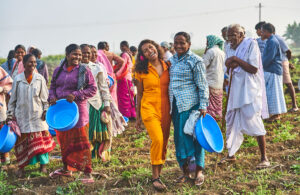
Diaspora Co – Building a Better, Equitable Spice Trade
Creating an equitable spice trade by disrupting an outdated trade system and putting money and power into the hands of Indian farmers.
United Arab Emirates
Monica Janvier December 3, 2020
In 2016, Founder and CEO Omar Al Jundi built Badia Farms, the first vertical farm in the UAE to provide fresh fruits and vegetables to restaurants and caterers in Dubai, grown on the same day. Using hydroponics technology and recycled water, Badia Farms sustainably grows fresh, flavorful, and organic produce year-round without sunlight, soil, or pesticides. Badia Farms is using energy-efficient and sustainable farming methods to solve food insecurity in arid desert climate areas like the Gulf Cooperation Council and to revolutionize the agriculture industry in the Middle East.
Mood of Living: Where did you grow up?
Omar Al Jundi: I grew up in the coastal city of Jeddah in Saudi Arabia.
CEO Omar Al Jundi
MoL: Where did you go to school? What did you study?
OAJ : I have a BSc in Industrial Engineering and MBA from the University of Miami – Go Hurricanes.
MoL: What inspired you to build Badia Farms?
OAJ: My earliest memories in relation to agriculture and produce was while growing up in Saudi Arabia. I would go with my father to the supermarket and see all the imported fruits and vegetables marked with flags of origin. However, when we would bite into them at home they lacked flavor and freshness. Those memories were very vivid when I began to think about Badia Farms. My early career was in engineering and banking, and I first took the entrepreneurial leap in Saudi Arabia in the hospitality sector by opening multiple unique restaurant concepts. When I decided to enter my next venture, I knew it had to have a positive impact in our region, to add value and make a difference to our community. When I visited Holland, I was surprised by the different varieties and tastes offered by food. For example, there were over 200 varieties of tomatoes and each had its own unique exquisite taste, shape, and color. When I was introduced to the concept of hydroponics and vertical farming, a bulb went off in my head, I realized then three aspects: 1) I could grow all year round in our agriculturally challenged region. 2) the produce can be grown sustainably whilst using minimal water. 3) the crops grown can finally be tasty and fresh.
MoL: What is your mission? How does Badia Farms improve the lives of others?
OAJ: In the GCC we are over-dependent on imported produce as traditional framing does not work in our arid desert climate. We are tackling an issue that will make a difference to society while preserving our natural resources such as water. And most importantly be able to provide fresh, flavorful, organic, and nutrient dense produce all year round. To summarize it, I have 2 missions: 1) for our region to become truly self sufficient 2) ensure people start enjoying the fruits and vegetables that are locally grown.
MoL: How is Badia Farms revolutionizing farming in the Middle East?
OAJ: The combination of both vertical farming and hydroponics are the pillars of Badia Farms and will pave the way for a new age of AgTech in the region. Hydroponics (soilless farming) allows us to recycle up to 90% of the water, and it can be grown in a fully closed environment, without even sunlight!
Badia is one of the few self-funded vertical farms in the globe, by taking charge ourselves to demonstrate the viability of vertical farming in our region, and designing the growing models and assembling the farm ourselves, we are not only pushing this topic forward, but showcasing a live example of how we can address our problems by believing in ourselves and trusting our skills and expertise to provide a solution that will evolve the region and enhance people’s lives. As we continue to grow and expand, we will continue to demonstrate the power of vertical farming and hydroponics in our region to produce food, which shall have a positive impact on the industry.
MoL: Where are your vertical farms located?
OAJ: Our farm is located in the Al Qouz area in downtown Dubai. This is what’s great about vertical farms, they can be located anywhere, even in dense urban areas.
When I first launched Badia Farms people were shocked that we were located in the heart of Dubai in the middle of an industrial area – they thought I would be taking them on a tour of our facilities at the outskirts of the city, where agricultural lands are located. We are planning to launch very soon additional farms in the U.A.E and Saudi Arabia.
MoL: The United Arab Emirates (UAE) aims to achieve zero hunger by 2051, how is Badia Farms influencing this vision? How are you working with the government to achieve this?
OAJ: By Badia Farms igniting an industry that has been nonexistent for so long, we are providing practical solutions that address food security that followed on a larger scale and on different products. What is important to mention, we are a local company, with local funding, local talent, providing a local solution that shall support the UAE and the world. We are in discussions with different government entities to explore the role they may play in supporting our expansion plans.
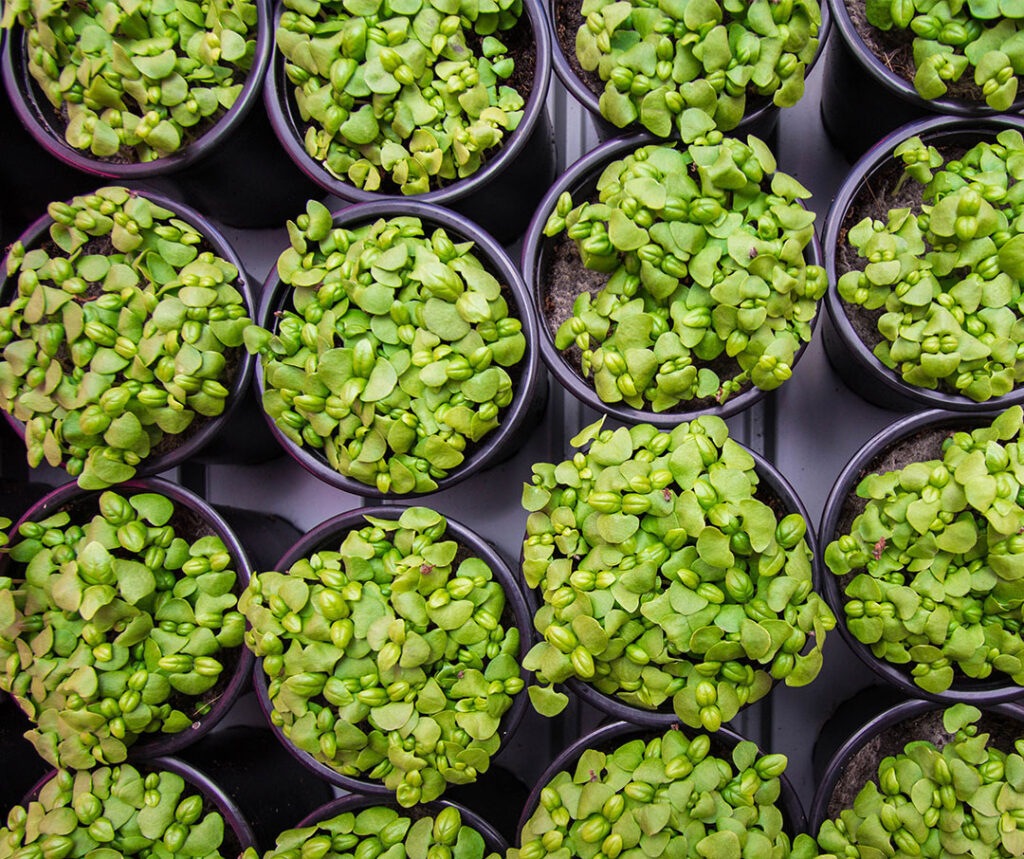
MoL: What products does Badia Farms grow? Who are your customers?
OAJ: Currently we grow 16 varieties of both microgreens and lettuce mixes. Through our distribution network, we are available in all customers, hotels, restaurants, cafes, supermarkets, and retailers around the UAE.
The hospitality sector has been one of our main clients from the very beginning. As a former restaurateur, it has been amazing to be able to work with the top chefs and restaurants in the UAE to supply them with fresh, better than organic flavorful products that wouldn’t be available to them otherwise. The journey from farm to table is much shorter which is reflected on the quality of the products and this is something our customers appreciate.
We are also excited about the launch of our own e-commerce platform, very soon!! The crop will be harvested only once a customer places an order and will reach them within a couple of hours. We are giving a new meaning to the word ‘Fresh’.
MoL: How do your products differ from imported produce? How do you manage to optimize the quality, flavor, and yield of your products?
OAJ: As our products are local and pesticide free, the freshness outperforms any imported products. Imported products take at least 4 days from the day they leave the farm until they reach the customers, if not more. These products have to go through the supply chain which take a toll on the quality of the product. Wastage is a big issue in the fruit and vegetables market. By growing locally, wastage goes down to Zero Percent as we harvest and deliver based on the customers’ requirements.
To optimize quality, flavor and yield, we rely on technology to do so. We’ve got computers to manage irrigation cycles and feed recipes, sensors to collect data, and lastly, Artificial Intelligence to recommend actions that will enhance the quality and yield of our products.
MoL: What technologies and methods are used at Badia Farms? What is Controlled Environment Agriculture (CEA)? How is it used to grow products?
OAJ: Vertical farming utilizes CEA principles (controlled-environment agriculture), which is mainly the ability to control all the inputs that go in the making of the plant. We are able to control every aspect of the ecosystem to ensure optimal growth conditions are provided for each crop. For example, our facilities utilize special LEDs, artificial lighting to replace the sunlight, each of the plants has its own unique requirement of light spectrum. In addition, we control and monitor all environmental inputs (humidity, temperature, CO2), and we use computer linked dosing units to schedule the irrigation and feed formulas. Lastly, our hydroponic growing methods use 90% less water compared to open field growing, and since we recirculate our water there’s no wastage.
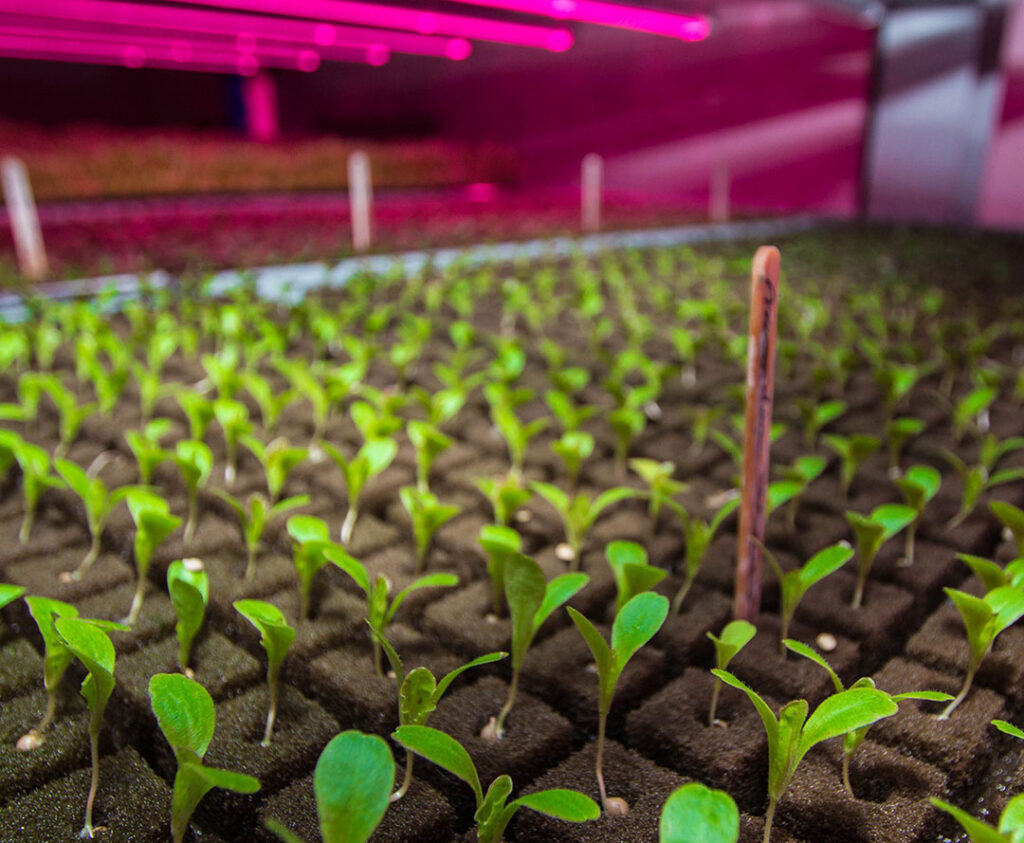
MoL: Why did you decide to recycle water? How is this done?
OAJ: The UAE is one of the world’s most water-scarce nations, to have food security in the UAE, we need to have water security! Water is the most important element in growing our plants, we can obtain power from the ample sun we have through solar panels, but water, we don’t have much of. Hence, we need to make sure we are using every single drop to its maximum potential. The beauty of hydroponics is that water can be reused if it is properly sterilized. We designed our irrigation and grow systems in a way that the water that isn’t taken by the plants, has a drainage system that collects the water, disinfects it, and takes it back to be used.
MoL: As the first commercial vertical farm in the UAE and the region, what are some obstacles you faced when creating Badia Farms? How do you overcome these challenges?
OAJ: The biggest challenge is that there aren’t any off-the-shelf solutions that can be immediately implemented. In the case of vertical farming, which is still in its infancy stage globally, we had to design our own grow system to form our IP and ensure we have a commercial operation that will yield high-quality products. Another limitation was not having the talent and agricultural experience in the region. Everyone is still learning and good talent is snatched up quickly.
We surely need a lot more support from the government and the private sector. The government could support the industry by introducing cost-effective initiatives that reduce the operational costs that will ensure the viability of such projects. Educating the public and consumers on the benefits of modern farming and vertical farming is also crucial in ensuring the continuity of this industry.
Similar to any entrepreneur who is at the forefront of new ideas and technologies, there will always be hurdles such as proofing the concept, creating a business out of the idea, establishing the sale channels, management of cash flow, ensuring the team being recruited fits within the culture of the company.
You overcome these challenges by having a strong support group around you. For example, I am fortunate to be part of the Entrepreneurs Organization – UAE Chapter. We have a member-led, confidential, peer-sharing program called ‘Forum’. I have been in my current form for over 5 years, with primarily the same 8 members, I attribute so much of Badia’s success to the advice I’ve received from these brilliant business owners in the trusted, confident EO setting.
MoL: If there is one thing you could change in the world right now what would it be?
OAJ: Very simple answer. Stop the use of pesticides.
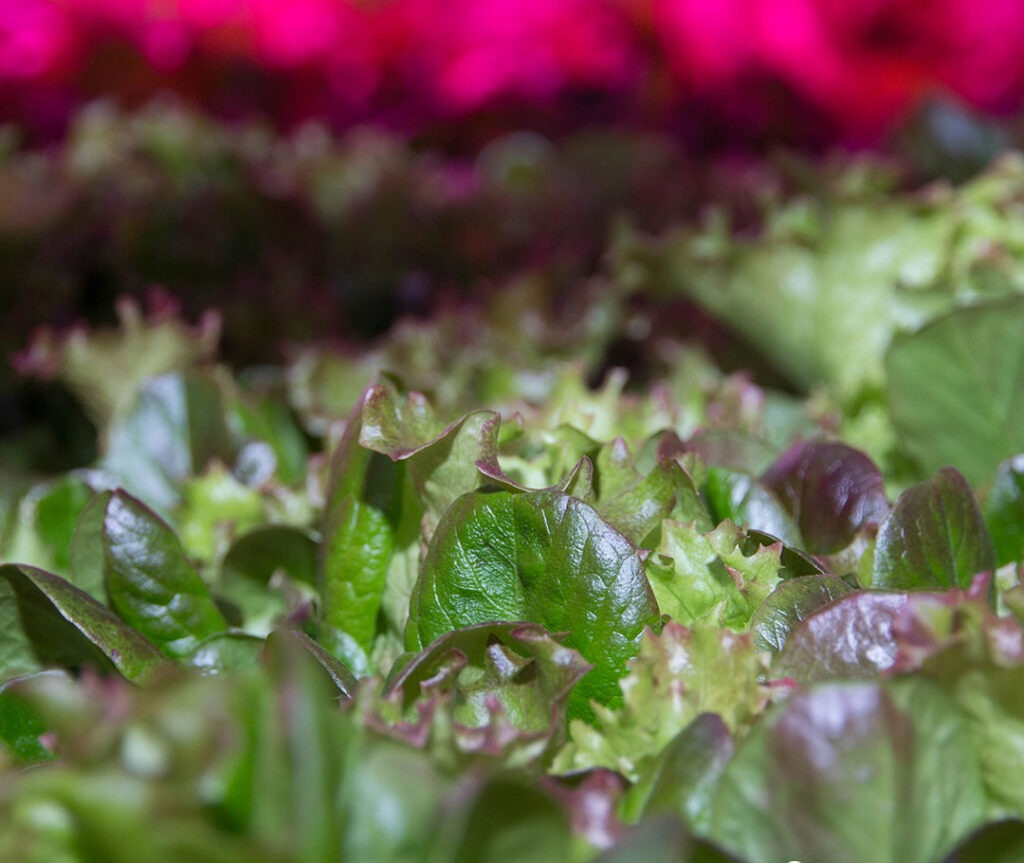
MoL: Do you live a conscious lifestyle? If so, how?
OAJ: Yes, a conscious lifestyle is an integral part of my life and it starts at home with my family. My wife Talah is a health coach ( follow her at @consciousliving.me on Instagram), so we implement both our beliefs on consciousness living when it comes to raising our 3 children. We make it a priority in our family to keep on top of physical and mental health in the everyday choices we make.
MoL: What advice would you give to someone who wants to help the world and start their own business?
OAJ: My two prerequisites before starting any business are to ensure the passion for the subject and practice, and secondly, to ensure a realistic business plan that fully understands the ins and outs of the industry, market, product, etc is in place.
Photography courtesy of Badia Farms

Creating an equitable spice trade by disrupting an outdated trade system and putting money and power into the hands of Indian farmers.
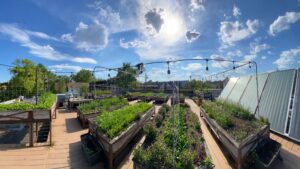
Founded by Helen and Mike Cameron, Uncommon Ground is America’s first certified organic rooftop farm.
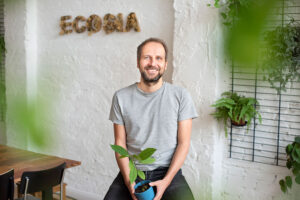
Ecosia, founded by Christian Kroll, is a sustainable search engine that turns searches into trees and is notably the first-ever German B-Corp.